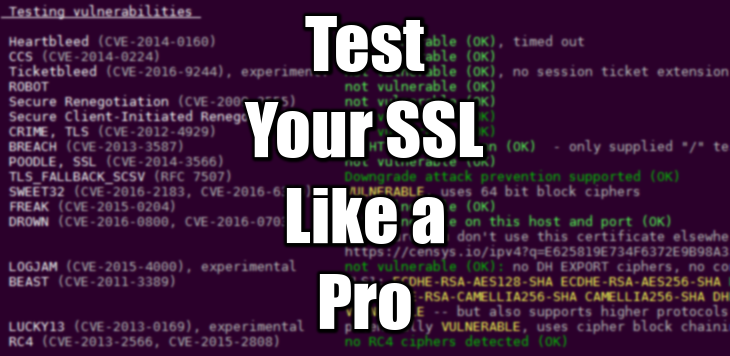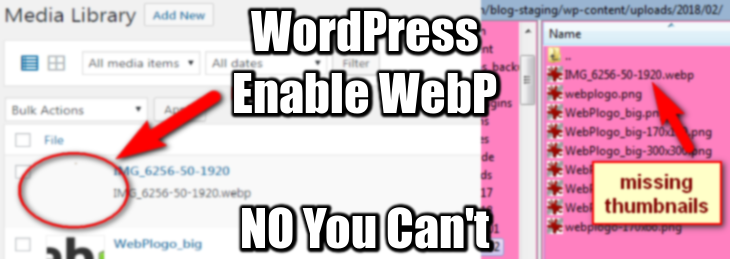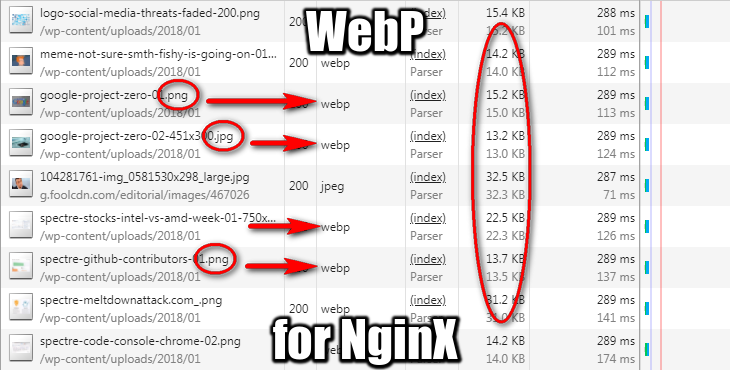
PHP Cache, Object Cache, Client Cache, CDN, Web Cache happens at every levels of the connection. This guide will list and explain the different cache options and software available for a PHP applications.
Continue reading Increase PHP App Performance: The 9 Tiers of Cache →

Web scan detection is a threat to your WordPress security. Scans are performed by malicious actors or bots, looking for open doors, and vulnerabilities in plugins. These scans can be used to identify outdated plugins, themes, or WordPress core versions that have known security vulnerabilities. Once these vulnerabilities are identified, attackers can exploit them to gain unauthorized access to the website, steal sensitive data, or use the website to launch further attacks. WordPress Security 2024: Best Scan Detection Protection against script kiddies and bad bots is here to tell you how to mitigate these risks.
Continue reading WordPress Security 2024: Best Scan Detection Protection →

Nginx provided by LinuxServer.io. as swag, is a reverse proxy in a docker container. It offers a module to integrate Crowdsec! Swag crowdsec is the plugin, but Crowdsec bouncer also needs to be installed as a separate container. You can find various not-too-difficult guides just like mine, hopefully this one is even easier?
Continue reading Crowdsec Security for swag Protects Your Nginx Reverse Proxy →

You checked your site SSL configuration with testssl.sh (see Test Your SSL Configuration with testssl) and it returned some SSL vulnerabilities? Here are some recipes to help you make sense of it all. You will most likely need the Mozilla SSL Configuration Generator to protect your site with an up-to-date, correct SSL configuration.
Continue reading Resolve SSL Vulnerabilities Detected by testssl →

Is your current SSL Configuration secure enough? Is you https site rejecting old clients? Here comes a great tool called testssl.sh. It’s a bash script, developed by drwetter on Github, to test SSL Configurations
Enabling SSL for your site is a great idea overall. However, navigate around the multitude of SSL Configurations available for Apache and nginx is quite daunting. What’s best? What’s most secure? Are you privileging compatibility against security? testssl will help you decide what’s best for your site.
Continue reading How To Test SSL Configurations With testssl.sh →

Dealing with SSL Configuration for Apache or nginx is not easy. There are so many ciphers, and we are constantly reading about breaches and exploits caused by some cipher… If you look around, a lot of bloggers propose this and that snippet of configuration, claiming it’s the best. Thus, after some time searching the web, you will feel like you are completely lost!
Hopefully, Mozilla offer an SSL Configuration Generator, to help you decide between security and availability. It’s AUTO-MAGIC!
Continue reading SSL Configuration for Dummies →

So you heard about WebP and its incredible compression factor? You want your WordPress blog to benefit of a good Google ranking? Solutions exist to allow WordPress handle WebP images, unfortunately it’s useless as WordPress won’t be able to resize them to create the thumbnails used everywhere.
EDIT 2024:
As of 2024 and WordPress 6.x, this content is completely deprecated. This page will be archived and replaced by the new solution: AVIF Revolution!
Continue reading You Cannot Enable WebP with WordPress in 2018 →

WebP is a next generation image format spearheaded by Google since 2013, which provides advanced compression options. While it is so much better than legacy formats, it is only supported at the moment of writing (February 2018) by Chrome, and Opera on desktops and Android (see Can I use WebP image format? for more details). As of today, Firefox is not scheduled to support WebP in future versions.
For an overview of WebP format and its shocking compression ration, see WebP: Another Google Project Behind the Scenes.
Practical solution is to serve images conditionally depending on the client browser WebP support. This recipe discusses how to do it with nginx.
EDIT 2024:
There is even better coming soon: AVIF Revolution!
Continue reading Conditionally Serving WebP Images With Nginx →
Success is just one script away







